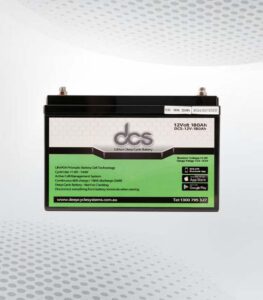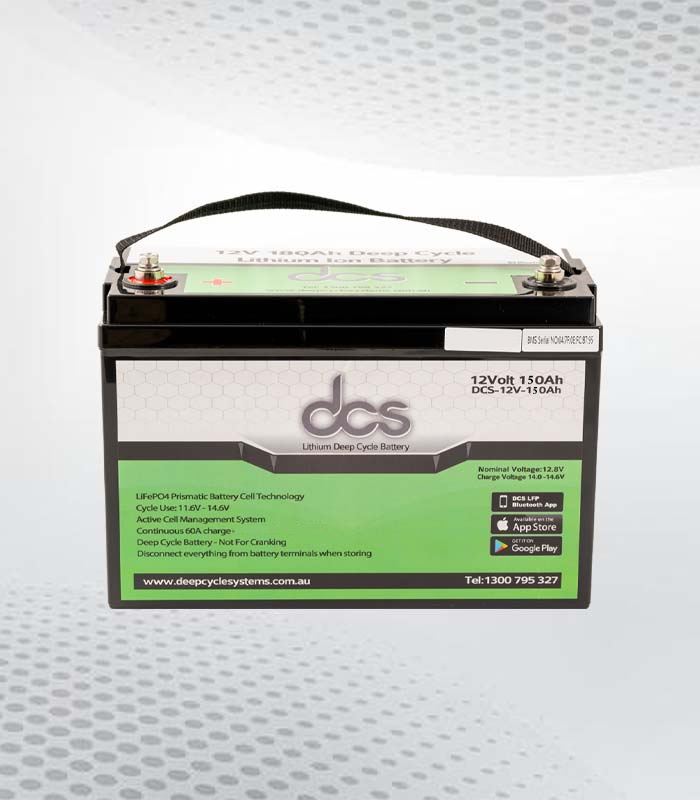In a world increasingly conscious of sustainability and self-reliance, the allure of living a life untethered from the traditional power grid has never been more appealing. Off-grid battery systems represent the pinnacle of this independence, offering a way to store and manage energy generated from renewable sources. They’re not just a step towards environmental stewardship but a leap towards personal freedom and energy security. But what does it take to disconnect from the grid and harness the power of off-grid batteries? Let’s dive into the essentials of Off Grid Battery System and explore how they’re redefining freedom.
Understanding the Basics of Off-Grid Battery Systems
At the core of any journey toward energy independence lies the off-grid battery system, a cornerstone for harnessing the power of renewable energy sources like the sun and wind. These systems, pivotal for any sustainable and self-reliant setup, consist of several critical components, each playing a unique role in energy management. Solar panels or wind turbines capture and convert natural resources into electrical energy. This energy is then stored in batteries, serving as a reservoir that can be tapped into when direct generation isn’t possible. Charge controllers are essential in this ecosystem, preventing overcharging and ensuring the longevity of the batteries by regulating the flow of energy. Lastly, inverters transform the direct current (DC) stored in batteries into alternating current (AC), making it compatible with household appliances. Understanding these components and their functions is the first step in designing an off-grid system that meets your energy needs and propels you towards a sustainable lifestyle unbound by the constraints of the conventional power grid.
 Off Grid Batteries for Solar
Off Grid Batteries for Solar
Off Grid Batteries for Solar are the backbone of a solar energy system, enabling the storage of power generated during sunny days for use when the sun isn’t shining. Integrating batteries into a solar setup is essential for those seeking true energy independence, as it allows for a consistent and reliable energy supply, regardless of weather conditions. The choice of battery—whether lead-acid, lithium-ion, or saltwater—will significantly influence your solar off-grid system’s efficiency, lifespan, and cost-effectiveness. For solar applications, lithium-ion batteries are particularly favoured for their high energy density and depth of discharge capabilities, allowing for more usable energy and greater flexibility in energy management. This section focuses on the unique considerations for selecting and integrating batteries specifically for solar off-grid systems, emphasizing the importance of matching the battery capacity with your solar panels’ output and energy consumption patterns to create a balanced and efficient system. By carefully considering these factors, homeowners and enthusiasts can optimize their off-grid solar setups to achieve unparalleled energy autonomy and sustainability.
Moreover, adding a high-quality battery management system can enhance safety, performance, and longevity, maximizing your investment in renewable energy. In the following sections, we will delve deeper into the variety of off-grid battery options, their respective advantages and drawbacks, and the most effective methods for maintenance and optimization.
Types of Batteries for Off-Grid Systems: Pros and Cons
Exploring the types of batteries for off-grid systems reveals a landscape of options, each with distinct advantages and drawbacks. Lead-acid batteries, a longstanding choice, offer affordability and wide availability. Their cost-effectiveness makes them an attractive option for those on a tight budget. However, their shorter lifespan and the need for regular maintenance—such as water level checks and equalization charges—pose notable disadvantages. Lithium-ion batteries present a more modern alternative, distinguished by their longer lifespan, higher energy density, and minimal maintenance needs. These features render lithium-ion a popular choice despite a higher initial investment. Saltwater batteries emerge as a compelling choice on the environmental front, free from toxic heavy metals and boasting full recyclability. This eco-friendly option underscores a growing trend towards sustainability in off-grid living. Each battery type carries unique characteristics, necessitating a thoughtful selection process tailored to individual energy requirements, budgetary constraints, and environmental values.
Sizing Your Off-Grid Battery System Correctly
Proper sizing of your off-grid battery system is pivotal for balancing energy sufficiency and cost-effectiveness. Start by compiling a detailed record of your daily energy consumption, including all electrical devices and their usage duration. This initial step helps in estimating the total energy requirement accurately. Factor in the energy generation potential of your system, taking into account seasonal variations in sunlight or wind availability. It’s essential to consider days of autonomy to safeguard against low renewable energy generation periods. Calculate this by determining how long your system needs to run without new energy input, ensuring resilience during unfavourable weather conditions. Remember, incorporating too much capacity can lead to unnecessary costs, while too little risks energy shortages. This careful calculation involves a deep understanding of your energy needs, the capabilities of different battery types, and the specifics of your renewable energy setup. By methodically sizing your system, you ensure a reliable power supply that matches your lifestyle demands without overspending on extra capacity.
Best Batteries For Off Grid Solar Power
Identifying the Best Batteries for off Grid Solar Power hinges on balancing efficiency, longevity, and environmental impact. While lithium-ion batteries stand out for their superior energy density and minimal maintenance, their initial cost may deter some. Those seeking a more budget-friendly solution might consider advanced lead-acid batteries, such as AGM (Absorbed Glass Mat) or Gel batteries, which offer improved durability and reduced maintenance over traditional lead-acid counterparts. Meanwhile, for individuals prioritizing environmental sustainability, the emerging technology of saltwater batteries presents an intriguing, eco-conscious alternative. These batteries avoid heavy metals, offering a less toxic solution and promoting recyclability. When selecting the best battery for your off-grid solar power system, consider not only the upfront cost but also the long-term value, factoring in lifespan, maintenance requirements, and environmental impact. Balancing these considerations will guide you towards the battery solution that best aligns with your off-grid aspirations and values.
Overcoming Challenges and Common Misconceptions
Embarking on an off-grid lifestyle entails navigating through a sea of myths and addressing real-world challenges. A prevalent misconception is the notion that transitioning off the grid necessitates a downgrade in living standards, which couldn’t be further from the truth. Modern off-grid battery systems are capable of powering a broad range of household appliances with remarkable efficiency, ensuring that comfort is not compromised. Another hurdle is the upfront cost associated with setting up an off-grid system. While it’s true that initial investments can be significant, the evolving landscape of renewable energy technology has led to more cost-effective solutions and systems. Additionally, prospective off-gridders often underestimate the importance of comprehensive planning and education in the successful implementation of an off-grid system. Understanding your energy needs, the capabilities of different battery types, and the ins and outs of system sizing can mitigate these challenges. Bridging the gap between myth and reality, coupled with meticulous planning, can significantly ease the transition to a sustainable, off-grid way of life.
Real-Life Success Stories: Off-Grid Battery Systems in Action
The transformative power of off-grid battery systems shines brightly in the tales of those who have ventured beyond the grid’s reach. In the rolling hills of a rural area, a family harnesses solar energy, storing it in an advanced lithium-ion battery system, powering their home and farm with reliability and efficiency. Halfway across the world, a small village taps into the wind’s might, using off-grid batteries to bring light and technology to remote classrooms, changing the educational landscape. Closer to the coast, a community initiative has launched an off-grid living project, integrating a mix of solar and wind energy stored in eco-friendly saltwater batteries, demonstrating a sustainable model of living in harmony with nature. These stories not only illuminate the practicality and adaptability of off-grid systems across diverse environments but also underscore the shared vision of a greener, more resilient future. Through these narratives, the potential of off-grid battery systems to empower and sustain communities and individuals becomes vividly apparent, offering a beacon of hope and innovation in the pursuit of energy independence.
Navigating Financial Incentives and Support for Off-Grid Projects
Embarking on an off-grid journey can be made significantly easier with the right financial support. Across the country, numerous incentives are designed to lower the barriers to adopting renewable energy solutions. These range from tax deductions and rebates to grants and low-interest loans, each aimed at reducing the upfront costs associated with purchasing and installing off-grid battery systems and renewable energy sources. Prospective off-gridders should diligently explore both federal and state-level programs, as benefits can vary greatly depending on location. Additionally, utility companies may offer buy-back programs for excess energy produced, further offsetting initial costs. Seeking advice from renewable energy consultants can provide valuable insights into the most current and applicable incentives, ensuring you maximize the financial support available for your project. Engaging with local off-grid communities online can also reveal lesser-known funding opportunities and practical tips for navigating the financial landscape of off-grid living.
FAQs
1. What’s the expected lifespan of batteries used in off-grid systems?
The durability of off-grid batteries is influenced by their type and maintenance. On average, you might expect lead-acid batteries to serve you for about 5-7 years, whereas lithium-ion varieties can exceed 10-15 years with appropriate care and usage.
2. Can off-grid battery systems adequately power a household?
Absolutely. With a system that’s correctly sized to your energy consumption and paired with adequate renewable energy sources such as solar panels or wind turbines, powering a full household is entirely feasible. It’s crucial, however, to meticulously assess and plan for your specific energy needs to achieve this.
3. Does living off-grid mean complete energy self-sufficiency?
Living off-grid can provide a substantial level of self-sufficiency, yet achieving 100% independence often involves integrating multiple energy sources. For instance, combining solar, wind, and sometimes hydro power, complemented by a backup generator, can help maintain energy supply during periods of low renewable energy production.
Conclusion
In wrapping up, it’s clear that off-grid battery systems are more than just a technology; they embody a philosophy of self-reliance, sustainability, and ecological responsibility. By carefully selecting appropriate batteries and overcoming the myths and financial hurdles, achieving a sustainable off-grid lifestyle is not only possible but increasingly practical. The evolution of battery technology and renewable energy sources continues to make off-grid living more attainable for a broader audience. Through diligent planning, understanding of one’s energy needs, and leveraging available financial incentives, individuals can create a robust system capable of supporting a comfortable, modern lifestyle away from the conventional power grid. This guide aims to empower you with the knowledge to confidently pursue your off-grid aspirations, fostering a future where living in harmony with nature and prioritizing sustainability are not only desired but achieved. As we look towards this future, remember, the journey to off-grid independence is not just about the destination but the profound sense of freedom and accomplishment it brings.
| Other Good Articles to Read |
| Blogs-Nation |
| Blogs-Peoples |
| Bryan Smith Blogs |
| Intellect Blogs |
| The Fault In Our Blogs |
| Blogs Eu |
| Oz Forums |
| Recruitment Blogs |
| Zet Blogs |
| Id Blogs |
| Blogs Tudiolegale |
| Blogs Map |
| Related Business Listings |
| Contact Directory |
| Local Business Profiles |



